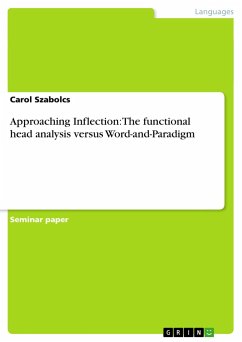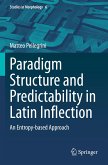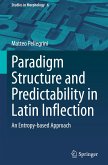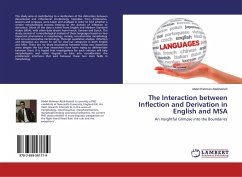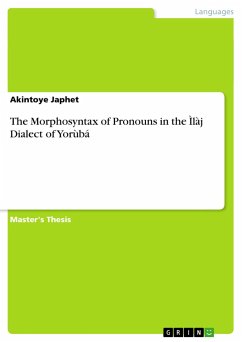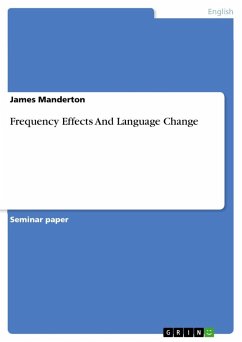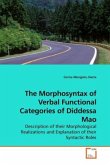Seminar paper from the year 2007 in the subject Speech Science / Linguistics, grade: 1,7, University of Cologne (Englisches Seminar), course: Morphology, language: English, abstract: A universal theoretical approach to inflection is just as difficult as the definition of inflection per se. Different theories have been provided over the past fifty years arguing and approaching inflection from a lexicalist or functionalist point of view. Other models that explain this linguistic process have been developed, too, as for example Distributed Morphology. In this work two approaches will receive closer attention: the functional head analysis of inflection and the Word-and-Paradigm model - two theoretical views to describe this as we shall see highly debated linguistic phenomena.The aim is to contrast and discuss only two of the theories in detail, and hence, to argue in favour of a Word-and-Paradigm approach to inflection. Examples in this work will focus on the inflection of verbs only, since in my opinion the examination of verbs from these two angles will provide the most obvious and efficient arguments in preference of the second theoretical approach. This paper is organized as follows: Section two will introduce the functional head approaches as proposed by Pollock (2006), Rivero (1990), and Speas (1990). The first two parts of this section will introduce the model for Modern English, Albanian and Modern Greek, and show how a tree-structured approach works on explaining inflection. In the third part Speas' analysis of Navajo will present a strictly argumentative functional head approach. The end of the section will focus on the critics brought forward by Joseph and Smirniotopoulos (1993) on Rivero's work. Section three focuses on the Word-and-Paradigm approach to inflection as advanced in an early theoretical approach by Robins (1959) and followed by Matthews (1970, 1972) and Anderson (1977, 1982). The model itself, terms and conditions will be presented inthe first part, followed by two examples: homophonous morphs in Latin (Bauer 1999) and cumulation in Georgian (Anderson 1982). These two examples will support a Word-and-Paradigm analysis instead of a functionalist analysis of inflection, by pointing at the weakness of the latter model. Section four offers an advanced analysis with the Word-and-Paradigm model and will reload Rivero's examples of Modern Greek verbs and show how Word-and-Paradigm provides a more favourable analysis following the critical answer to her article by Joseph and Smirniotopoulous (1993).Section five will end with a preliminary conclusion on this paper.
Bitte wählen Sie Ihr Anliegen aus.
Rechnungen
Retourenschein anfordern
Bestellstatus
Storno

